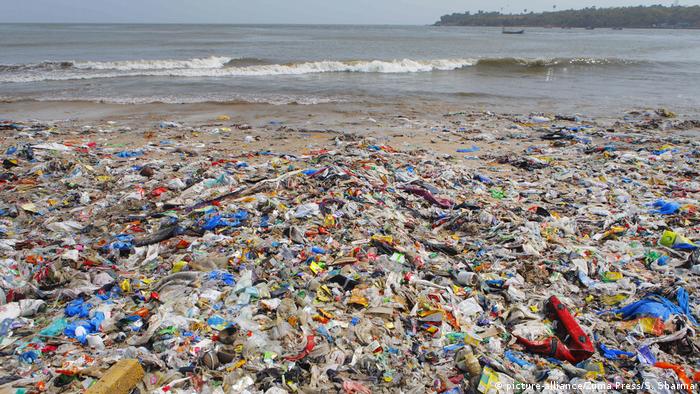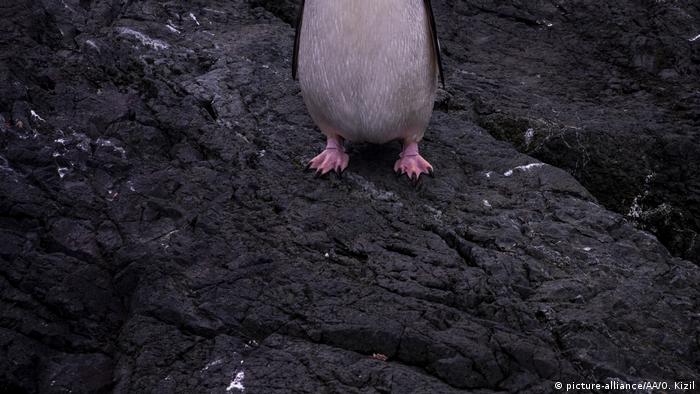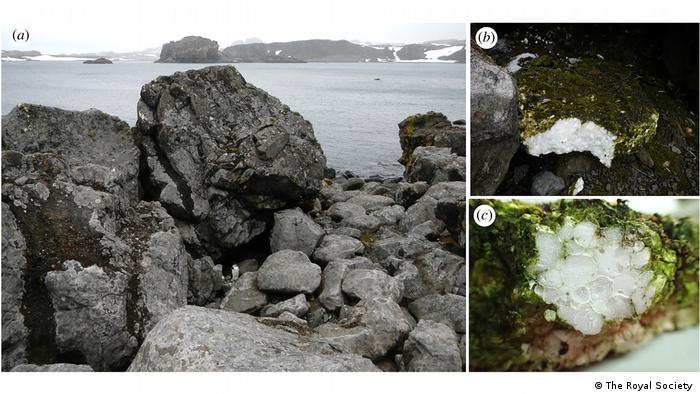Dan De Luce and Abigail Williams

© Provided by NBC News
WASHINGTON — A senior Democratic senator has demanded President Donald Trump explain his administration's rationale for sending thousands of ventilators to foreign countries without approval from Congress and raised concerns that political considerations are affecting decisions on international aid to combat the COVID-19 pandemic, according to letters sent Wednesday and obtained by NBC News.
"I write to express concern about the absence of clear guidelines for providing ventilators to foreign countries," Sen. Bob Menendez of New Jersey, the ranking Democrat on the Senate Foreign Relations Committee, wrote in a letter to Trump.
Menendez said the administration has yet to offer "an adequate rationale" for waiving legal requirements to notify Congress about the assistance and asked the White House to explain the criteria for deciding which countries should receive ventilators.
WASHINGTON — A senior Democratic senator has demanded President Donald Trump explain his administration's rationale for sending thousands of ventilators to foreign countries without approval from Congress and raised concerns that political considerations are affecting decisions on international aid to combat the COVID-19 pandemic, according to letters sent Wednesday and obtained by NBC News.
"I write to express concern about the absence of clear guidelines for providing ventilators to foreign countries," Sen. Bob Menendez of New Jersey, the ranking Democrat on the Senate Foreign Relations Committee, wrote in a letter to Trump.
Menendez said the administration has yet to offer "an adequate rationale" for waiving legal requirements to notify Congress about the assistance and asked the White House to explain the criteria for deciding which countries should receive ventilators.

© Orlando SIerra Image: HONDURAS-HEALTH-VIRUS (Orlando SIerra / AFP - Getty Images)
In a separate letter to the acting head of the U.S. Agency for International Development, John Barsa, the senator said he was concerned that the White House National Security Council's influence on decision-making on ventilator assistance "interjects political agendas into how USAID allocates its Global Health and Emergency Reserve Fund resources."
Acting USAID spokesperson Pooja Jhunjhunwala acknowledged the agency received the letter and said, "We always work closely and cooperatively with Congress and seek to be as timely and responsive as possible to their requests for information."
U.S. assistance is tailored to each country’s needs, she said. "This includes working with frontline workers to slow the spread, care for the affected, and equip local communities with the tools, such as ventilators, needed to fight COVID-19.”
The administration has informed Congress it plans to spend about $202 million to purchase 7,582 ventilators to distribute to up to 40 countries. Trump's national security adviser, Robert O'Brien, has said the president is committed to donating or selling 14,000 ventilators abroad.
The letters from Menendez come amid frustration among some career staff at USAID, who say public health experts at the agency have been shut out of the deliberations, two government officials familiar with the issue told NBC News. The officials said USAID staffers are concerned that poorer countries possibly require other more basic items such as personal protective equipment instead of ventilators, and may lack staff with special training to operate the machines.
"There are no criteria" for the delivery of ventilators, said one of the officials. "This is totally driven by the president and by the White House."
The White House and USAID were not immediately available to comment.
But a senior administration official said the U.S. is providing medical supplies and ventilators to countries that need them, and rejected the idea that the decisions are arbitrary.
Now that domestic needs for ventilators have been met, the president "continues to reach out to our partners and allies around the world to ensure they can have access to high-quality, America-made, life-saving ventilators to meet their medical needs," the administration official said.
"With the United States now on track to produce over 100,000 high-quality ventilators by the end of the July 2020, by far the highest production of ventilators in history, the President continues to reach out to our partners and allies around the world to ensure they can have access to high-quality, America-made, life-saving ventilators to meet their medical needs," the official said.
But some public health experts said ventilators are not the most urgent item for impoverished countries fighting the COVID-19 pandemic.
"Ventilators are not what lower income countries need most. They need support for their health systems, personal protective equipment, testing and contact tracing," said Lawrence Gostin, a professor of medicine and law at Georgetown University and head of the O'Neill Institute for National and Global Health Law.
Dr. Craig Spencer, director of global health in emergency medicine at Columbia University Medical Center, agreed. "It's worse than swatting a fly with a sledge hammer," Spencer said, as most poorer countries "need much more basic tools, like running water or a supply of oxygen."
In his letter to Trump, Menendez also asked whether the White House National Security Council "is instructing USAID to procure or purchase ventilators from specific vendors or manufacturers, and whether you, members of your family, or any senior White House officials hold stock or control shares (either directly or through mutual funds) in the companies USAID is purchasing ventilators from."
In a separate letter to the acting head of the U.S. Agency for International Development, John Barsa, the senator said he was concerned that the White House National Security Council's influence on decision-making on ventilator assistance "interjects political agendas into how USAID allocates its Global Health and Emergency Reserve Fund resources."
Acting USAID spokesperson Pooja Jhunjhunwala acknowledged the agency received the letter and said, "We always work closely and cooperatively with Congress and seek to be as timely and responsive as possible to their requests for information."
U.S. assistance is tailored to each country’s needs, she said. "This includes working with frontline workers to slow the spread, care for the affected, and equip local communities with the tools, such as ventilators, needed to fight COVID-19.”
The administration has informed Congress it plans to spend about $202 million to purchase 7,582 ventilators to distribute to up to 40 countries. Trump's national security adviser, Robert O'Brien, has said the president is committed to donating or selling 14,000 ventilators abroad.
The letters from Menendez come amid frustration among some career staff at USAID, who say public health experts at the agency have been shut out of the deliberations, two government officials familiar with the issue told NBC News. The officials said USAID staffers are concerned that poorer countries possibly require other more basic items such as personal protective equipment instead of ventilators, and may lack staff with special training to operate the machines.
"There are no criteria" for the delivery of ventilators, said one of the officials. "This is totally driven by the president and by the White House."
The White House and USAID were not immediately available to comment.
But a senior administration official said the U.S. is providing medical supplies and ventilators to countries that need them, and rejected the idea that the decisions are arbitrary.
Now that domestic needs for ventilators have been met, the president "continues to reach out to our partners and allies around the world to ensure they can have access to high-quality, America-made, life-saving ventilators to meet their medical needs," the administration official said.
"With the United States now on track to produce over 100,000 high-quality ventilators by the end of the July 2020, by far the highest production of ventilators in history, the President continues to reach out to our partners and allies around the world to ensure they can have access to high-quality, America-made, life-saving ventilators to meet their medical needs," the official said.
But some public health experts said ventilators are not the most urgent item for impoverished countries fighting the COVID-19 pandemic.
"Ventilators are not what lower income countries need most. They need support for their health systems, personal protective equipment, testing and contact tracing," said Lawrence Gostin, a professor of medicine and law at Georgetown University and head of the O'Neill Institute for National and Global Health Law.
Dr. Craig Spencer, director of global health in emergency medicine at Columbia University Medical Center, agreed. "It's worse than swatting a fly with a sledge hammer," Spencer said, as most poorer countries "need much more basic tools, like running water or a supply of oxygen."
In his letter to Trump, Menendez also asked whether the White House National Security Council "is instructing USAID to procure or purchase ventilators from specific vendors or manufacturers, and whether you, members of your family, or any senior White House officials hold stock or control shares (either directly or through mutual funds) in the companies USAID is purchasing ventilators from."

© Chris Bergin Image: Ventec ventilator (Chris Bergin / Reuters file)
The Trump administration has already come under scrutiny for how it has managed the purchase and distribution of crucial medical supplies inside the U.S. since the start of the COVID-19 outbreak in January. NBC News has previously reported that senior political appointees made decisions on federal contracts and the allocation of scarce medical resources based in part on personal relationships and partisan loyalty.
During the early stages of the coronavirus outbreak, U.S. public health and hospital officials worried that the country faced potentially dire shortages of ventilators for critically ill patients and cited Italy as a worst-case scenario where doctors had to ration the equipment. After initially resisting the idea, President Trump eventually used presidential authority under the Defense Production Act to order companies to manufacture large numbers of ventilators for the crisis.
Critical care doctors, meanwhile, have increasingly chosen less invasive methods to help patients breathe, viewing the machines as a last resort. A recent medical study published concluded that using the machines more sparingly would save the lives of COVID-19 patients. The National Institutes of Health has issued treatment guidelines calling for a phased approach for patients with breathing problems and putting off using ventilators if possible.
'King of ventilators'
In comments at briefings and in tweets since April, President Trump has mentioned plans to send ventilators to various countries, boasting that the U.S. is now the "king of ventilators."
"Just spoke to President Juan Orlando Hernandez of the Republic of Honduras. We work closely together on the Southern Border. Will be helping him with his request for Ventilators and Testing," Trump tweeted.
But Guatemala was absent from the presidential tweets related to Central America, and the administration has announced no plans to send ventilators to that country. Guatemala has more than once suspended deportation flights from the U.S. after dozens of deportees tested positive for the coronavirus upon arriving from the United States.
Guatemalan President Alejandro Giammattei complained about a lack of U.S. aid — and ventilators — last month.
"Guatemala is an ally of the United States, but I don't believe the US is an ally to Guatemala, because they don't treat us like one," Giammattei said on May 21 at an Atlantic Council conference via Zoom. "We've seen how they've assisted other countries with ventilators, and we haven't even gotten a dime from them — not even one single mask from the United States. We don't feel appreciated."
When asked about Guatemala, Acting Assistant Secretary for Western Hemisphere Affairs Michael Kozak told reporters last month there was no correlation between pandemic assistance and that country's approach to deportation flights and U.S. immigration policy.
"There isn't some hard linkage here between cooperation on removals and ventilators," Kozak said. "We're trying to get medicine and medical supplies to anybody who needs them, including countries that we have not particularly good relations with."
Earlier this month, the State Department said it was providing more than $8 million in assistance to help Guatemala fight COVID-19.
The Trump administration has already come under scrutiny for how it has managed the purchase and distribution of crucial medical supplies inside the U.S. since the start of the COVID-19 outbreak in January. NBC News has previously reported that senior political appointees made decisions on federal contracts and the allocation of scarce medical resources based in part on personal relationships and partisan loyalty.
During the early stages of the coronavirus outbreak, U.S. public health and hospital officials worried that the country faced potentially dire shortages of ventilators for critically ill patients and cited Italy as a worst-case scenario where doctors had to ration the equipment. After initially resisting the idea, President Trump eventually used presidential authority under the Defense Production Act to order companies to manufacture large numbers of ventilators for the crisis.
Critical care doctors, meanwhile, have increasingly chosen less invasive methods to help patients breathe, viewing the machines as a last resort. A recent medical study published concluded that using the machines more sparingly would save the lives of COVID-19 patients. The National Institutes of Health has issued treatment guidelines calling for a phased approach for patients with breathing problems and putting off using ventilators if possible.
'King of ventilators'
In comments at briefings and in tweets since April, President Trump has mentioned plans to send ventilators to various countries, boasting that the U.S. is now the "king of ventilators."
"Just spoke to President Juan Orlando Hernandez of the Republic of Honduras. We work closely together on the Southern Border. Will be helping him with his request for Ventilators and Testing," Trump tweeted.
But Guatemala was absent from the presidential tweets related to Central America, and the administration has announced no plans to send ventilators to that country. Guatemala has more than once suspended deportation flights from the U.S. after dozens of deportees tested positive for the coronavirus upon arriving from the United States.
Guatemalan President Alejandro Giammattei complained about a lack of U.S. aid — and ventilators — last month.
"Guatemala is an ally of the United States, but I don't believe the US is an ally to Guatemala, because they don't treat us like one," Giammattei said on May 21 at an Atlantic Council conference via Zoom. "We've seen how they've assisted other countries with ventilators, and we haven't even gotten a dime from them — not even one single mask from the United States. We don't feel appreciated."
When asked about Guatemala, Acting Assistant Secretary for Western Hemisphere Affairs Michael Kozak told reporters last month there was no correlation between pandemic assistance and that country's approach to deportation flights and U.S. immigration policy.
"There isn't some hard linkage here between cooperation on removals and ventilators," Kozak said. "We're trying to get medicine and medical supplies to anybody who needs them, including countries that we have not particularly good relations with."
Earlier this month, the State Department said it was providing more than $8 million in assistance to help Guatemala fight COVID-19.














